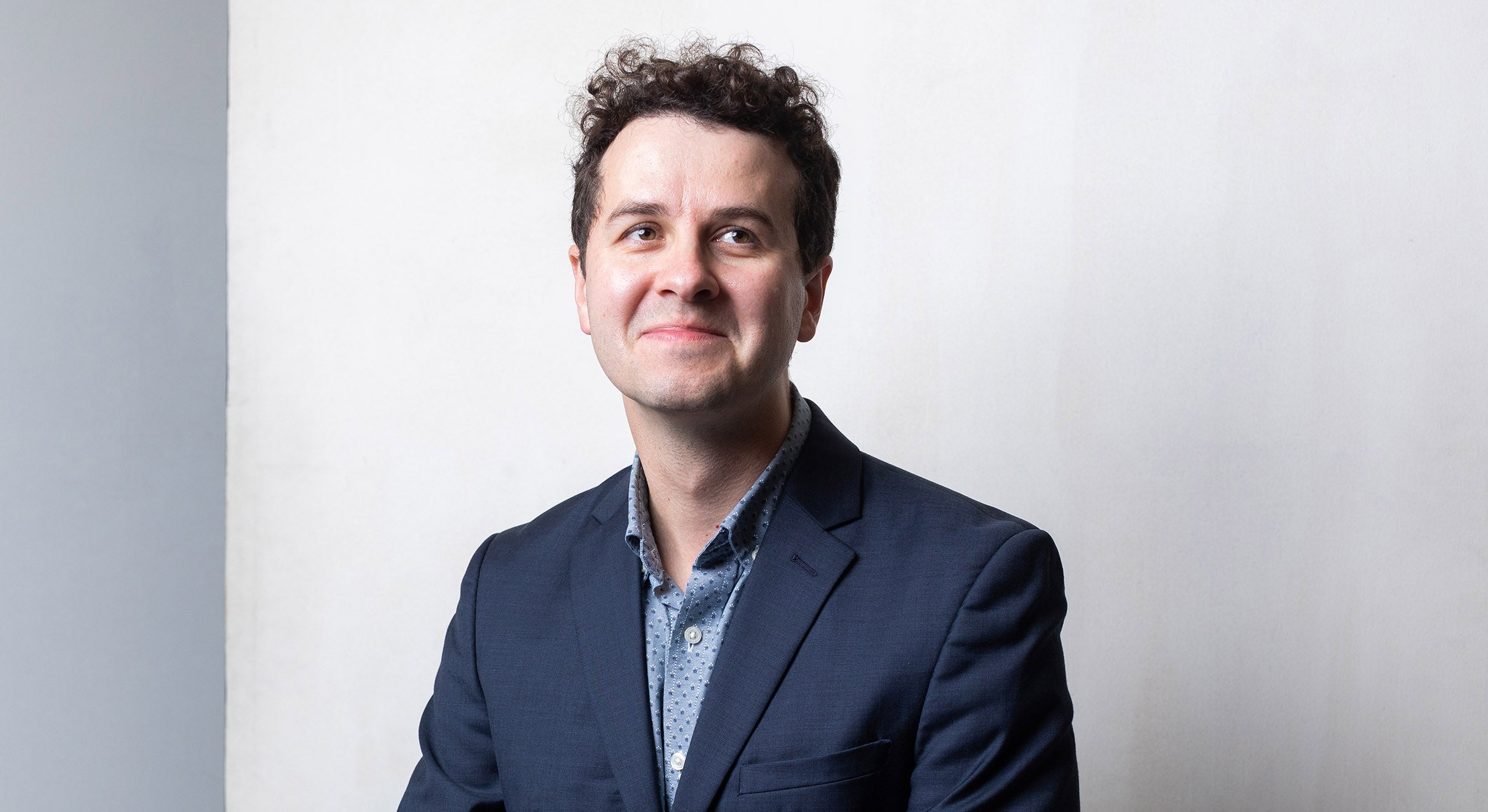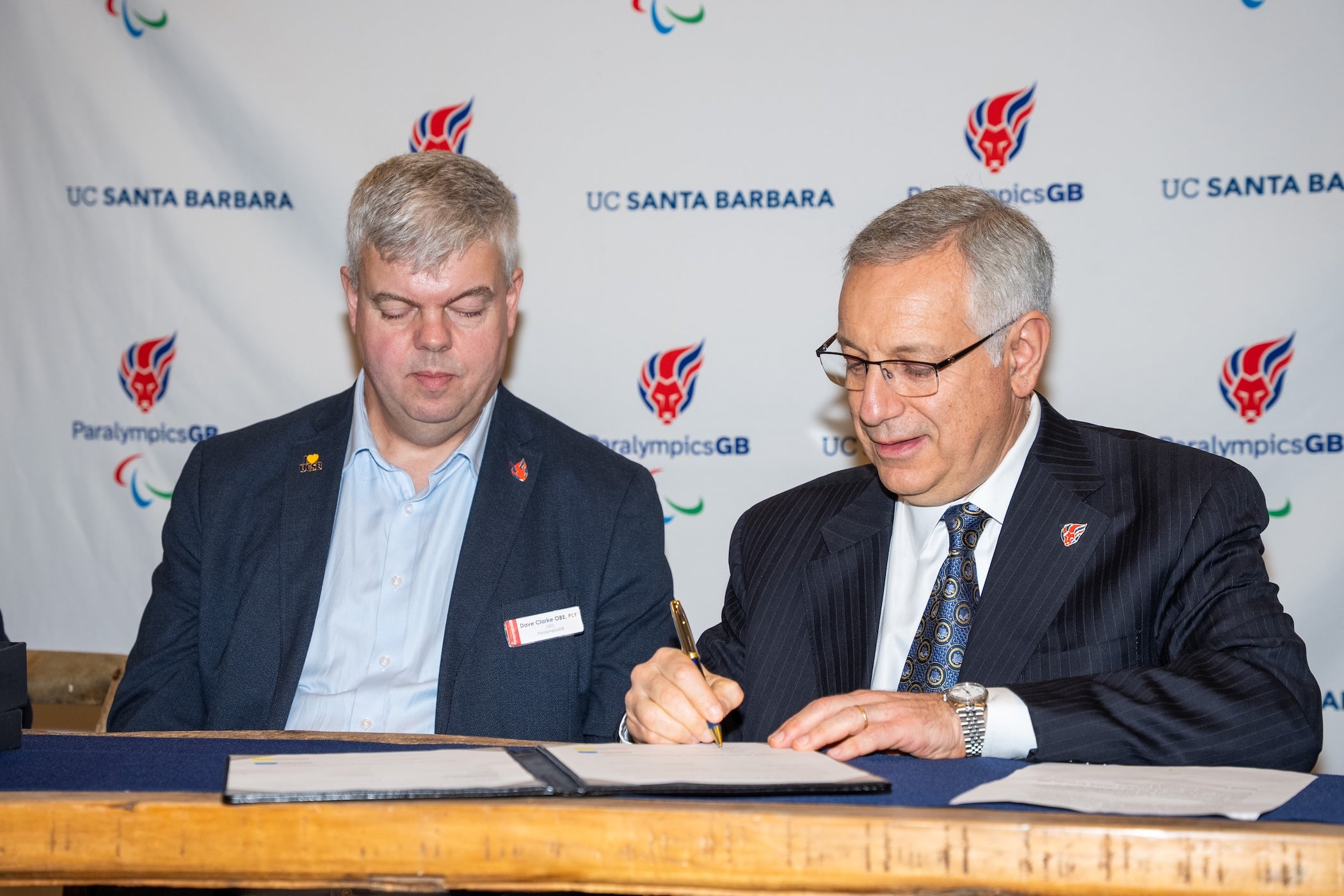
Two Scholars Elected to Britain's Royal Society, World's Oldest Scientific Academy
Two UC Santa Barbara faculty members have been elected to Britain's prestigious Royal Society, the world's oldest scientific academy. They are among only seven scholars at U.S. universities elected by the society this year.
The Royal Society was founded in 1660 and is celebrating its 350th anniversary. It is made up of 1,300 of the most distinguished scientists from the United Kingdom, other Commonwealth countries, and the Republic of Ireland. Fellows of the Royal Society are elected for life.
UCSB's Craig Hawker, director of the Materials Research Laboratory and a professor of chemistry, biochemistry, and materials, was elected to the Fellowship of the Royal Society.
Michael Goodchild, director of the Center for Spatial Studies at UCSB and a professor of geography, was elected as a Foreign Member of the Royal Society.
They were among the 44 new Fellows, 8 Foreign Members and 1 Honorary Fellow elected in London on May 20. Having two members from the same U.S. university elected to the Royal Society in the same year is considered a rarity.
Chancellor Henry T. Yang called this important international recognition of two of his UCSB faculty colleagues "an extraordinary honor with 350 years of prestige and reputation." He noted that the two scholars would be part of a society that has included among its members Isaac Newton, Charles Darwin, Ernest Rutherford, Albert Einstein, Dorothy Hodgkin, Francis Crick, James Watson, and Stephen Hawking. The current membership includes more than 60 Nobel Laureates.
In its official citations on the new members, the Royal Society praised their scientific creativity, dedication, and vision. The complete texts of the two individual citations follow:
Professor Craig Jon Hawker, Fellow of the Royal Society
"Craig Jon Hawker is one of the world's foremost pioneers in the design and synthesis of functionalized macromolecules. His outstanding body of work on the creative development of new synthetic strategies for the creation of novel polymers has revolutionized the field of polymer synthesis and has been extensively cited and widely recognized. He has introduced numerous innovative and influential concepts for the synthesis of complex, nanostructured materials being a pioneer in the fields of dendritic macromolecules, living free radical polymerization, click chemistry and block copolymer lithography. Each of these fields is in itself a vibrant and emerging area of science. His work on novel materials has been a key driving force behind the growing convergence of synthetic polymer and organic chemistry and has led to both significant scientific discoveries that have changed the direction of materials research as well as new technological applications in biomaterials and microelectronics."
Professor Michael Goodchild, Foreign Member of the Royal Society
"Michael Goodchild is the unchallenged global leader of Geographic Information (or systems) Science. This seeks to conceptualize the complexities of field- and object-based geographic phenomena as manifested across both the traditional physical and ‘hard' social sciences. Based on this, he has led research teams which have created new analytical methods for integration and analysis of very large spatial databases, leading to a $20bn+ industry. The quality and innovative nature of his work have led to him being elected as a member of the U.S. National Academy of Sciences and of the American Academy of Arts and Sciences, a Foreign Fellow of the Royal Society of Canada and a gold medalist of the Royal Geographical Society."
Related Links



